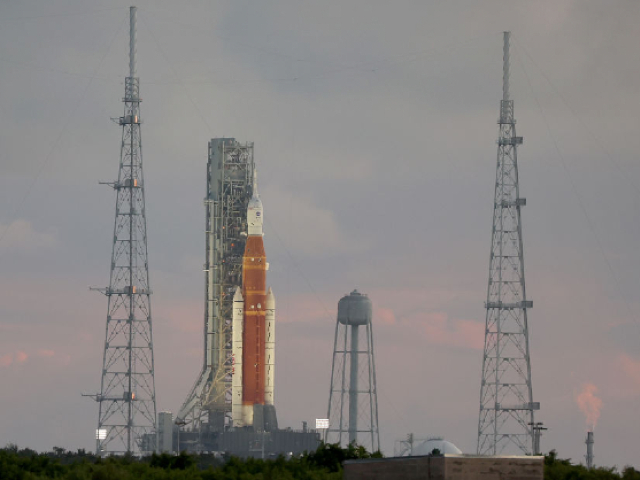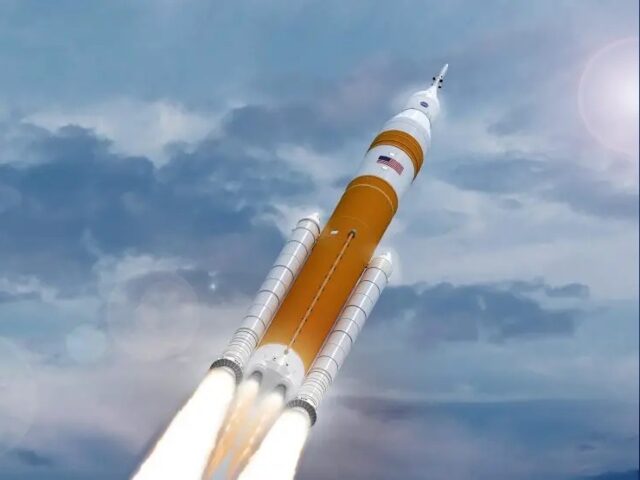NASA’s Space Launch System (SLS) rocket, designed to ferry astronauts to the moon, has been reportedly found by an audit to be $6 billion over budget and six years behind its original schedule.
Engadget reports that a recent audit has found that NASA’s Space Launch System (SLS) rocket, which is intended to transport astronauts to the moon, is $6 billion over budget and six years behind schedule.

CAPE CANAVERAL, FLORIDA – AUGUST 29: NASA’s Artemis I rocket sits on launch pad 39-B at Kennedy Space Center on August 29, 2022 in Cape Canaveral, Florida. The Artemis I launch was scrubbed after an issue was found on one of the rocket’s four engines. The next launch opportunity is on September 2. (Photo by Joe Raedle/Getty Images)
The Inspector General of NASA, who is responsible for the recent audit, paints a bleak picture of the project’s current state, issuing a cautionary note regarding potential future cost and schedule increases that could jeopardize the success of the entire Artemis mission.
“NASA’s spending on the Artemis Moon Program is expected to reach $93 billion by 2025, including $23.8 billion already spent on the SLS system through 2022. That sum represents ‘$6 billion in cost increases and over six years in schedule delays above NASA’s original projections,'” the report states.
The SLS rocket uses four RS-25 engines per launch, including 16 that were salvaged from decommissioned Space Shuttles. It made its first launch in November 2022. However, using this off-the-shelf technology has not resulted in the anticipated cost savings. The audit highlights how much more difficult than anticipated it has turned out to be to integrate new and legacy systems.
“These increases are caused by interrelated issues such as assumptions that the use of heritage technologies from the Space Shuttle and Constellation Programs were expected to result in significant cost and schedule savings compared to developing new systems for the SLS,” the audit states. “However, the complexity of developing, updating, and integrating new systems along with heritage components proved to be much greater than anticipated.”
The Inspector General also took issue with the use of “cost-plus” contracts which enable suppliers to easily inflate budgets. The report suggests that future projects be switched to fixed-price contracts that don’t allow budges to reach the Moon before the humans the Artemis Moon Program plans to send there.
The management of NASA has accepted all eight of the audit’s recommendations. The successful implementation of these suggestions and the resolution of the problems found during the audit now determine the future of the Artemis moon mission.
Read more at Engadget here.
Lucas Nolan is a reporter for Breitbart News covering issues of free speech and online censorship. Follow him on Twitter @LucasNolan

COMMENTS
Please let us know if you're having issues with commenting.